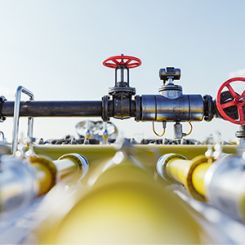IDA holds World Congress in Brazil
International Desalination Association comptroller and past president
02/02/2018
Latin America is the place where modern desalination began, and it is a region where desalination and water reuse needs are set to grow exponentially. Many countries in Latin America have come a long way in the use of desalination and reuse technologies, from Brazil to Mexico, Venezuela to Peru, and Argentina to Colombia. It is a large market, full of opportunity.
Latin America represents one of the largest future markets for desal and reuse. The region has a population of more than 650 million people. This presents a growing demand to develop industrial activities and support urban expansion. Latin America is one of the most urbanized regions in the world, with approximately 80 percent of its population living in urban areas. It is projected that urban population will reach 674 million in 2050 according to the United Nations Department of Economic and Social Affairs. Opening ceremony at the IDA 2017 World Congress, São Paulo (Courtesy of the author)
Opening ceremony at the IDA 2017 World Congress, São Paulo (Courtesy of the author)
 See more of our State of the Industry 2018 coverage.
See more of our State of the Industry 2018 coverage.